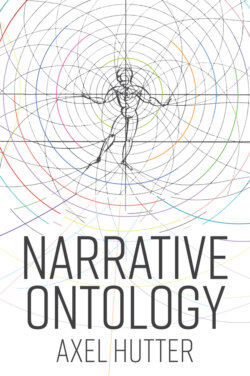Читать книгу Narrative Ontology - Axel Hutter - Страница 25
The Original Scene
ОглавлениеThe leitmotif links the subjectivity of human being, which manifests itself linguistically in saying ‘I’, with the thought that something matters, that not everything is equally important (and thereby unimportant); rather, it is necessary to distinguish between the unmeaningful and the meaningful, between what does not matter and what matters.
In the Joseph novel, what matters is more specifically taken up as blessing. Of course, the more specific meaning of ‘blessing’, just like the deeper meaning of the ‘I’, will emerge in due course. Here at the start it cannot be a matter, then, of immediately specifying exactly what is to be understood by ‘blessing’, for it is not that the correct understanding of ‘blessing’ is the precondition for an understanding of the narrative, but the other way round: the better we understand the stories of Abraham, Isaac, Jacob and Joseph, the more clearly we will see how to understand ‘blessing’ and the ‘I’.
Due to the close connection between the ‘I’ and ‘blessing’, it is no coincidence that the sentence that has been selected as the leitmotif appears in that central scene of the Joseph novel in which blessing, or rather the passing on of the blessing, is at issue in a dramatic climax. In this original scene of the novel, the inner connection with the ambiguity of the I becomes immediately evident, for it matters very concretely and very urgently who says the little word ‘I’.
In the novel, the recounting of the original text reads: Jacob came ‘to his father’s tent, put his mouth to the curtain, and said, “It is I, my father”. From deep within the tent came Isaac’s peevish voice, asking, “But who are you? Are you not perhaps a thief on the prowl who has come to my tent saying I? For anyone can say I, but what matters is who says it.”’ Jacob replied, ‘“It is your son who says I.” “That is another matter”, Yitzchak replied from inside. “Then come in.” So Jacob entered the twilight of the tent.’ Yitzchak ‘asked again, “So who are you then?” And in a breaking voice Jacob replied, “I am Esau”’ (165–6).
What happens in this original scene? Isaac (Yitzchak) feels his death is near and wants to pass on to his firstborn son Esau the blessing that he himself received from his father Abraham. He has already sent out Esau to prepare a meal to give the father strength for the impending blessing of his chosen son.1 Yet Isaac is nearly blind and in the tent it is dark. Thus, he has every reason to respond to Jacob’s ‘It is I’ with the question: ‘Who’s speaking?’, ‘Who is it, that says I?’ Jacob, on the other hand, who (incited by his mother) wants to stage, in the darkness of the tent, the interplay of identity and the cunning theft of the blessing, has every reason to answer the question ‘Who are you?’ evasively with the simple ‘I’, in whose universality he can conceal his particularity.
The Joseph novel stages the original scene, taking pleasure in narrative detail and in a way that is almost blatantly obvious – more obvious at least than in the original text, even if all the crucial motifs are already present in the Bible. Psychologically, the scene is highly plausible: Jacob, who has a guilty conscience, seeks to avoid as far as possible the actual crime, the pronounced lie. Thus, he announces himself with the simple and ambiguous ‘It is I, my father’ in order to answer the second question ‘Who are you?’ with the simple: ‘It is your son who says I.’
It is striking that both utterances are entirely correct according to the letter. Just like Esau, Jacob is a son of Isaac. Up to this point, he is entirely ‘innocent’ in his I-saying and is presumably hoping desperately not to be interrogated further and so to avoid the explicit lie. But then he is asked a second time, and Jacob answers: ‘I am Esau.’ And now it has happened.
